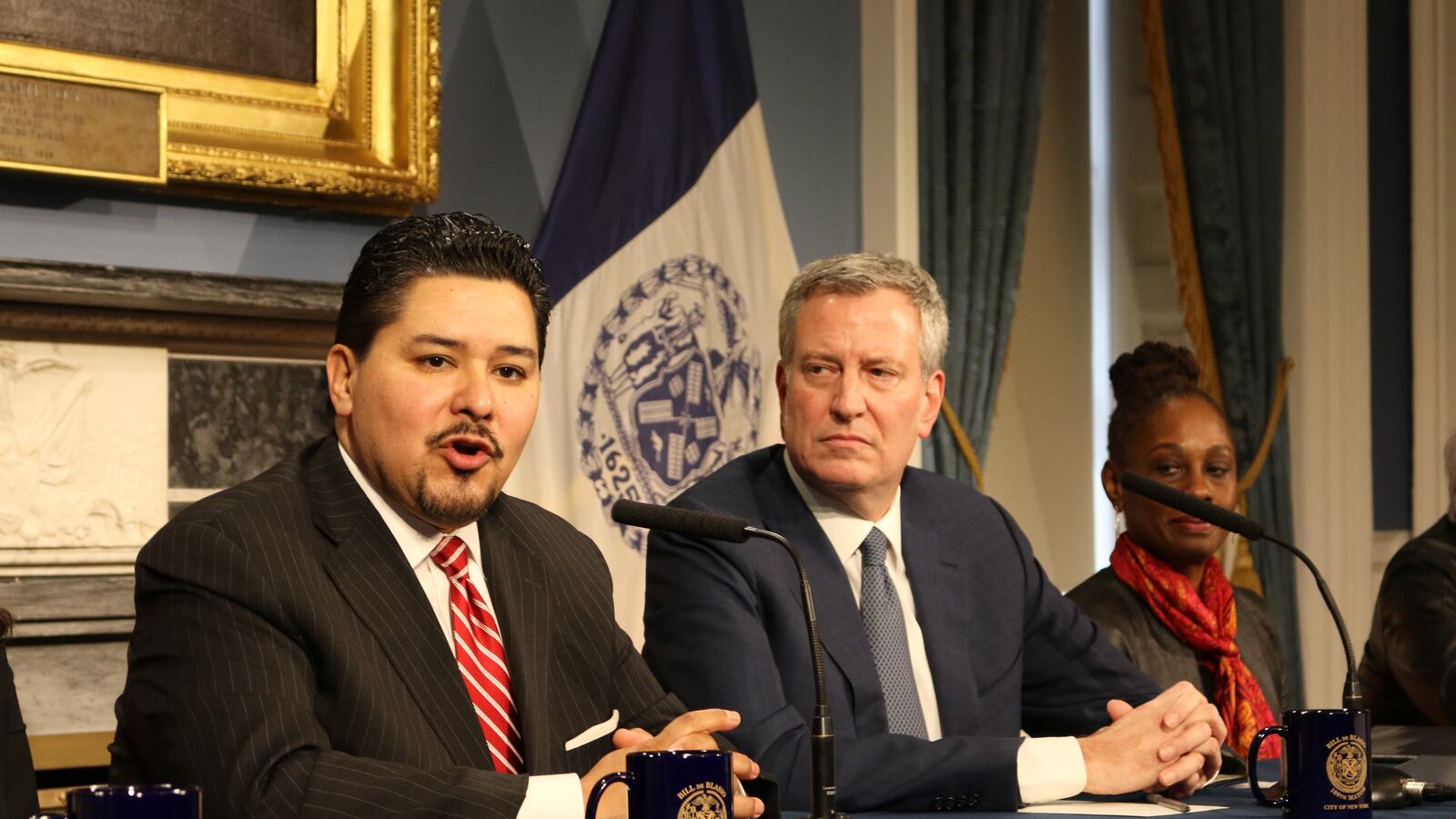After considering a new round of school closures, Mayor Bill de Blasio and schools Chancellor Richard Carranza are preparing to announce that they will not shutter any schools in the city’s Renewal turnaround program this year.
A formal announcement is expected soon and would come after some officials believed additional closures were all but inevitable. Now, according to a senior department official who has been briefed and a portion of an internal document reviewed by Chalkbeat, no schools appear slated for the chopping block.
The apparent shift in thinking comes after a recent review, ordered by Carranza, of the 50 remaining Renewal schools and 21 Rise schools, which included visits from executive superintendents, the source said.
Education department spokesman Will Mantell declined to comment.
De Blasio’s turnaround program has sparked controversy since it launched in 2014. Officials sold Renewal as an alternative to closures, and argued that the city’s lowest-performing schools could rapidly improve with an influx of additional social services and academic supports over just three years. But more than four years and nearly $800 million later, the program has achieved results far short of the mayor’s promise of “fast and intense” improvements.
Although officials have always maintained closures were a “last resort,” some Renewal schools began closing within a year of the program’s launch. Of the original 94 schools, 14 have been closed, nine have left the program after being merged with other schools, and city officials said 21 have shown sufficient progress to slowly ease out of the program.
The plan to keep all of the remaining schools open raises questions about what the education department’s strategy will be to ensure those schools are viable. Officials have indicated that many core elements of the turnaround program will persist, including partnerships with nonprofits that help provide services such as mental health counseling and dental clinics. They will also keep their current funding levels, which were increased in many cases.
But Carranza has not offered a complete vision for school turnaround after Renewal, which he questioned early in his tenure as chancellor as not having a clear “theory of action.” Last October, de Blasio said the program was reaching its “natural conclusion.”
City officials have declined to explain exactly what will happen to schools that are currently in the turnaround program, whether they will launch a new effort, or even if a specific program of school intervention will gain traction in Carranza’s administration.
“The chancellor hasn’t said much of anything that is suggestive of a comprehensive strategy,” Aaron Pallas, a professor at Teacher College, previously said.
The politics of the Renewal program dogged de Blasio during much of his first term. The mayor’s critics have argued the program trapped students in schools the city knew were failing, while it gambled on unproven interventions. Research on the program has given those critics some ammunition. One analysis found the program did not seem to have a meaningful effect on graduation rates or test scores; another found only slight gains on tests. And behind closed doors, city officials were much less optimistic about the school’s chances of swift progress.
Supporters of the program have privately acknowledged Renewal was oversold and that dramatic improvements at struggling schools were always unlikely to happen on the mayor’s aggressive timeline. Still, many argue that flooding schools with resources is preferable to shutting them down and opening new ones, the favored strategy under Mayor Michael Bloomberg. Some research has found that approach showed promise, but it also drew fierce protest from teachers who worried about shuttering key community institutions in predominantly low-income neighborhoods.
Experts have not settled on a single set of surefire approaches achieve rapid school turnarounds; even dramatic overhauls and handing management over to charter operators have shown mixed results.

